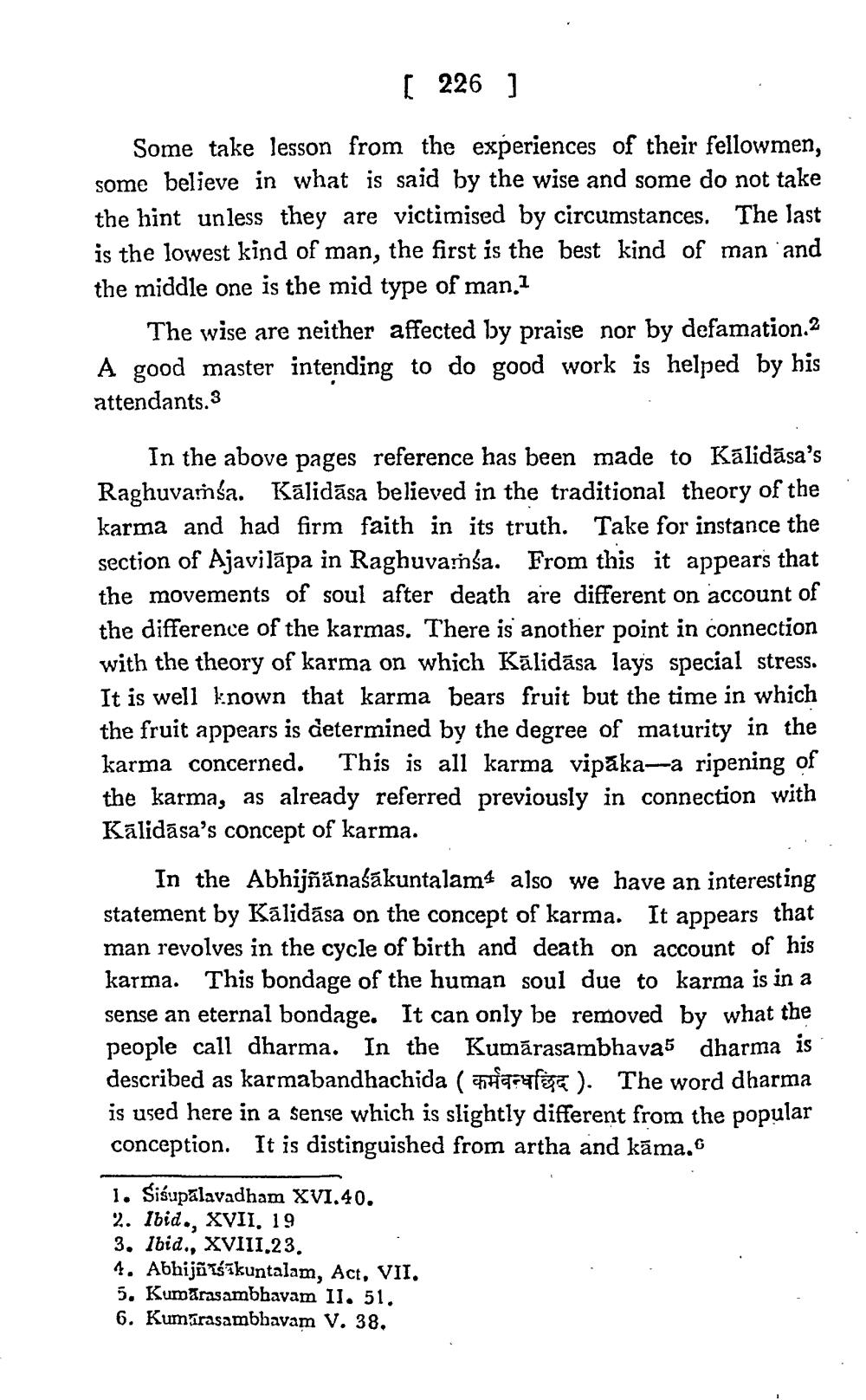________________
[ 226 ]
Some take lesson from the experiences of their fellowmen, some believe in what is said by the wise and some do not take the hint unless they are victimised by circumstances. The last is the lowest kind of man, the first is the best kind of man and the middle one is the mid type of man.1
The wise are neither affected by praise nor by defamation.2 A good master intending to do good work is helped by his attendants.3
In the above pages reference has been made to Kālidāsa's Raghuvarśa. Kālidāsa believed in the traditional theory of the karma and had firm faith in its truth. Take for instance the section of Ajavilāpa in Raghuvamsa. From this it appears that the movements of soul after death are different on account of the difference of the karmas. There is another point in connection with the theory of karma on which Kālidāsa lays special stress. It is well known that karma bears fruit but the time in which the fruit appears is determined by the degree of maturity in the karma concerned. This is all karma vipaka--a ripening of the karma, as already referred previously in connection with Kālidāsa's concept of karma.
In the Abhijñānasākuntalam4 also we have an interesting statement by Kalidasa on the concept of karma. It appears that man revolves in the cycle of birth and death on account of his karma. This bondage of the human soul due to karma is in a sense an eternal bondage. It can only be removed by what the people call dharma. In the Kumārasambhava5 dharma is described as karmabandhachida ( Fuqia ). The word dharma is used here in a sense which is slightly different from the popular conception. It is distinguished from artha and kāma.
1. Sisupalavadham XVI.40. 2. Ibid., XVII, 19 3. Ibid., XVIII.23. 4. Abhijñaśīkuntalam, Act, VII. 5. Kumarasambhavam ll. 51. 6. Kumarasambhavam V. 38.




